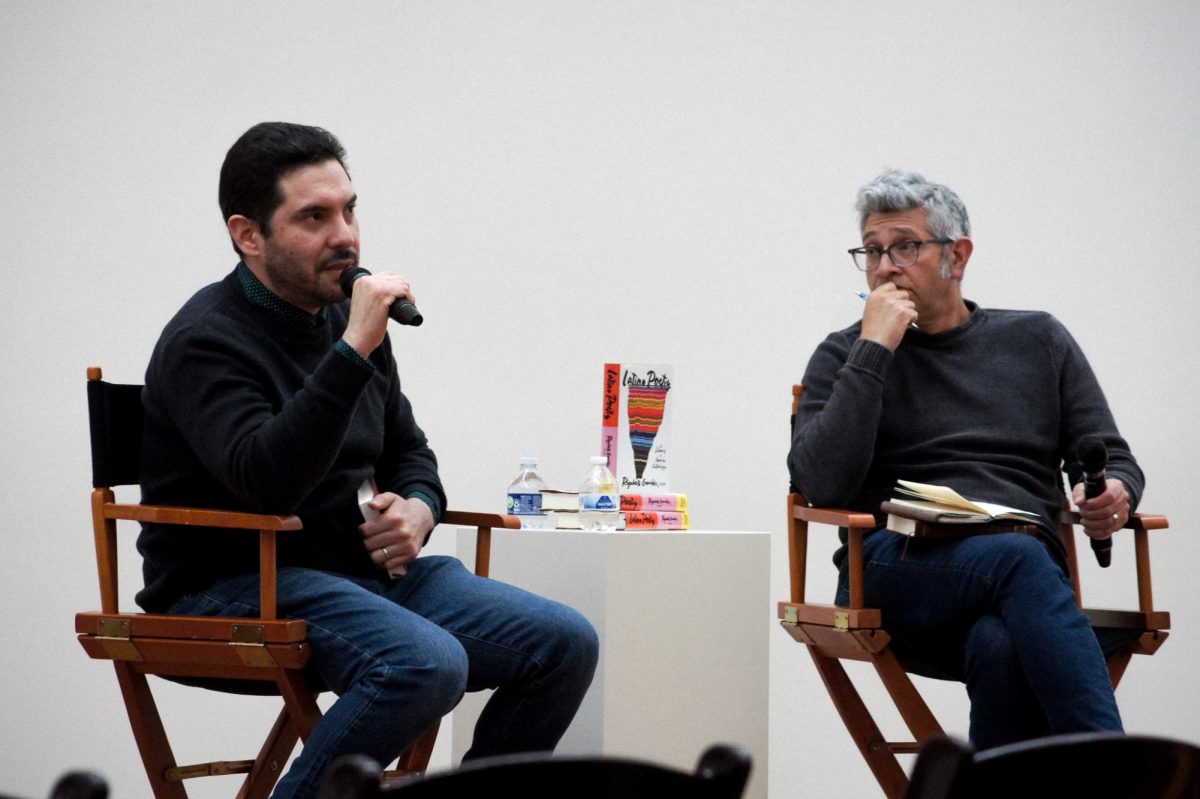Maxfield: The Porn Crisis No One Is Talking About
January 25, 2020
Many states are following Utah’s lead and declaring pornography to be a public health crisis. Certainly, porn consumption is linked to a host of societal breakdowns, including the illegal, wrongful exploitation of adults and many children. Although Utah’s 2016 resolution blames porn for thirty-ish societal problems, its potency is overstated. Many of the issues listed originate in toxic family relationships, traumatic events, abuse, religious rigidity and ethnocentric beliefs, none of which are exclusively found in porn.
The resolution fails to distinguish between legal and illegal porn, which is unsurprising, because when Utah’s social issues have either real or perceived moral components, the lines separating church and state seem to blur. Nevertheless, legal porn does exist. Lying indecently in its shadow is the real porn crisis — employment discrimination.
Fight The New Drug, an anti-pornography organization headquartered in Utah, argues that state resolutions like Utah’s are meaningful because they will empower local government leaders to “advocate against the threat.” Yet, as we enter the fourth year since Gov. Gary Herbert signed Sen. Todd Weiler’s resolution, little has changed. Broad goals, like the organization’s mission to “decrease the demand for porn,” are empty because as things stand, neither they nor Utah’s lawmakers can perform this task.
If Utah truly wants to reduce porn, lawmakers can and should amend Utah’s Antidiscrimination Act, adding explicit employment protections for porn actors seeking change and making Utah a safe and welcoming career destination for those leaving the industry. Likewise, The Church of Jesus Christ of Latter-day Saints should put some of its excess ($100 billion) monies where its morals are and erect a non-denominational, non-profit foundation to provide education, housing and living assistance to former porn actors where none currently exist.
While it is legal for consenting adults to act in pornographic films, those who do so remain unprotected by the United States federal laws which govern employment discrimination. The 2012 documentary film “After Porn Ends” seeks to illuminate, among other things, the economic impact of this societal hypocrisy. (Beware — this unrated film includes explicit footage.) In the film, current and former actors share their stories of post-porn employment discrimination, including being fired after getting recognized in their new job. Others share broader sentiments about working in porn. “When you’re involved in this industry, you lose your humanity,” said the blogger and internet journalist Luke Ford. “ You’re no longer treated as a human being by 80% of people out there.”
Although actors can sometimes find employment success post-porn, Ford is not wrong. An unspoken, asymmetrical truth exists in our society — it’s cool if you watch porn (no one knows, anyway) and it’s even cooler to recognize and call someone out who acts in porn, potentially harming their non-porn career. Yet, it’s uncool for porn actors to penetrate the boundaries of civilized employment? Given that porn actors face a disproportionate amount of stigma and no laws protect them from employment discrimination, it’s unfair to blame them when they yo-yo back and forth, plunging into and out of the porn industry in pursuit of economic stability.
Failure to recognize or address discrimination is only one of many problems with Utah’s anti-porn resolution. None of the 18 “whereas” statements manage to address the duty of parents or guardians to implement and monitor technology filters, appropriate to the ages and needs of their minor children. Instead, lawmakers place all blame on porn. Even if lawmakers could eradicate porn, their exhaustive list of problematic societal issues, including risky sexual behaviors, will not magically shrink or wilt away. Existent before the Internet or smartphones, these issues persist because they are human problems, not porn problems.
Utah lawmakers also fail to distinguish between legal and illegal pornography. Both are lumped together, seemingly viewed as equally obscene when they are not. Three “whereas” statements are particularly irritating — adult females are lumped together with minor children (presumably male and female). It is legal for adults of any gender to act in porn films, whereas all child porn is illegal. As an adult woman, I find this pairing concerning – lines 42-45 are not quite misogynistic, but they do seat adult females firmly at the children’s table.
Speaking to attendees of Utah’s Coalition Against Pornography 2016 annual conference, Elder Jeffrey R. Holland, an apostle in the Church of Jesus Christ of Latter-day Saints, also names porn a public health crisis. Holland admonished, “We do need to see [porn] like avian flu, cholera, diphtheria or polio.” He goes on to say, “One wonders whether those who produce pornography, perform it, or view it will over time retain any capacity for healthy human intimacy, for a truly loving sexual experience, or for true dignity in any human relationship, sexual or otherwise.” Seriously? He is throwing large verbal stones at porn actors, even though those who wish to leave the industry cannot reliably transition into more tasteful employment.
To those who call porn immoral and seek its eradication, what are you doing to help people leave that industry? It is outrageous to speak down to these people with inflated moral superiority while ignoring the glass ceiling they live beneath. If lawmakers, religious leaders or anyone else want to effect positive changes regarding porn production, both action and financial support will be required. Luckily, in Utah some of the loudest voices also have the deepest pockets. But will the Church use their money to help dust out the hovels, help clean that which they call dirty and degrading, help create paths away from a life in porn? We can hope.
Utah’s resolution against porn exemplifies shaming and blaming, wastes time by fighting science with ideology, and attacks the wrong issue. It serves to judge others while ignoring the real harm and inequity found in employment discrimination. It fails to distinguish between legal and illegal porn. Whereas it fails in any of these ways, it must be amended. Until anti-discrimination laws in Utah (and elsewhere) include employment protections for porn actors desiring to leave the industry, anti-porn resolutions will prove impotent, and the moral superiority adopted by hardcore anti-pornography leaders will remain a mere facade.











